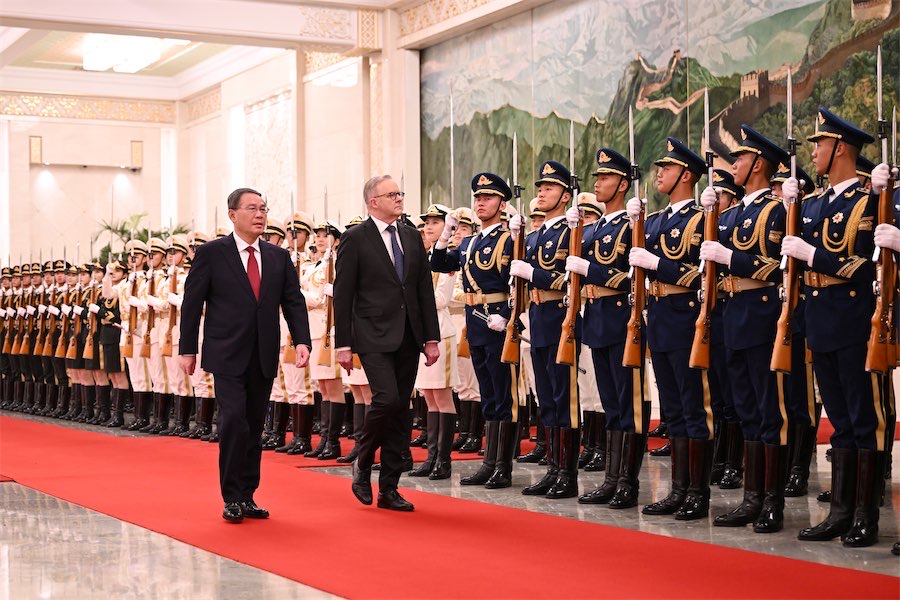
By Tess Ikonomou and Andrew Brown in Beijing
ANTHONY Albanese has arrived at Beijing’s Great Hall of the People for his official welcome by Chinese Premier Li Qiang.
On the final day of his three-day visit, Mr Albanese arrived at China’s seat of power to a military guard of honour.
The prime minister was greeted by Mr Li, and the pair shook hands in front of a row of the two nation’s flags.
A military band played both national anthems as Mr Albanese and Mr Li stood on a podium in the middle of a grand hall at the venue.
Mr Albanese earlier described his high-level talks with Xi Jinping as “very successful” after meeting with the Chinese president at the Great Hall on Monday evening for more than an hour.
Mr Xi cracked a rare smile and gave a warm handshake upon greeting Mr Albanese.
The Chinese leader said Beijing and Canberra had “worked out some problems,” referencing points of contention including human rights, escalation of threats against Taiwan and trade bans on Australian exports worth $20 billion at their height.
In his opening remarks, Mr Xi praised the prime minister for working to stabilise and improve relations with China.
“Now the China-Australia relationship has embarked on the right path of improvement and development,” the Chinese leader told the Australian delegation.
“I’m heartened to see that.
“A healthy and stable China relationship serves the common interests of our two countries and two peoples.”
Mr Albanese described the meeting as “warm” and “very successful”.
“What we have done is continue to put forward Australia’s position in a principled way, in a clear way, but in a way that hasn’t sought to amplify differences to score a political point,” he said.
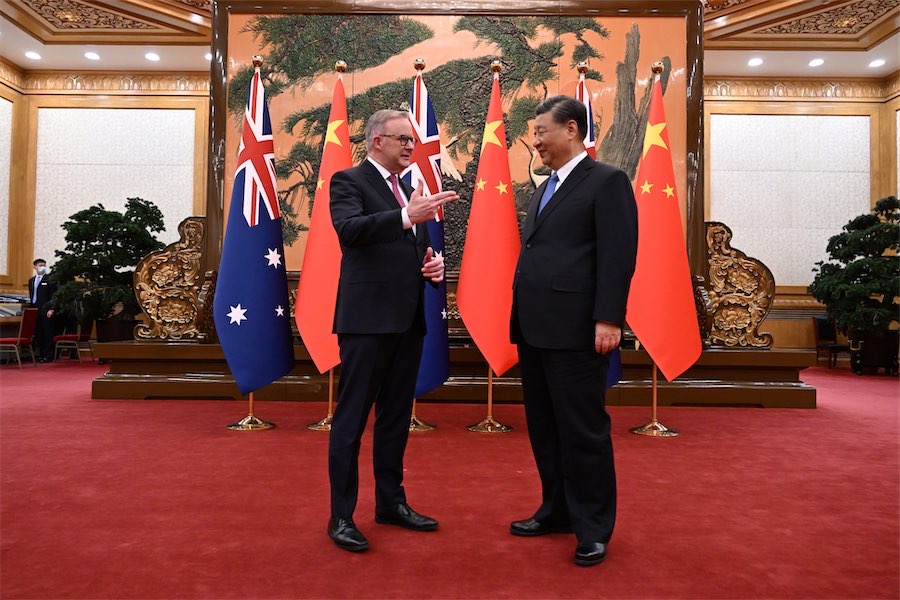
Chinese Communist Party mouthpiece the “China Daily”, splashed with the meeting between Mr Albanese and Mr Xi.
State-run media stressed the importance of Australia and China co-operating through “mutual understanding and trust”.
The issue of trade featured high up in the coverage.
The paper also cited “other issues” as having caused the relationship to stumble.
Mr Albanese is the first Australian prime minister to visit China since 2016, when Malcolm Turnbull visited as leader.
The former prime minister said while inroads had been made by the federal government, China had been looking for inroads to reset the relationship.
“(China) exercising coercive control failed… it didn’t result in any change in Australian policy, and in fact, arguably, resulted in us moving closer to our ally the United States,” Mr Turnbull told ABC Radio on Tuesday.
“China then needed an exit ramp, and the obvious exit ramp was a change in government.”
Mr Turnbull said the relationship between the two countries stood on more stable ground.
“Australia has stood up to that (economic) pressure. China has recognised that doesn’t, hasn’t worked, and we’ve moved on to a more stable, normal, conventional relationship, and that’s good,” he said.
Agriculture Minister Murray Watt said the relationship with China was in a better place than it was one year ago.
“The prime minister went into this meeting not necessarily expecting to return with a bag of goodies, but … there have been significant successes delivered to Australia in the form of new exports and jobs for Australians,” he told ABC Radio.
Who can be trusted?
In a world of spin and confusion, there’s never been a more important time to support independent journalism in Canberra.
If you trust our work online and want to enforce the power of independent voices, I invite you to make a small contribution.
Every dollar of support is invested back into our journalism to help keep citynews.com.au strong and free.
Thank you,
Ian Meikle, editor

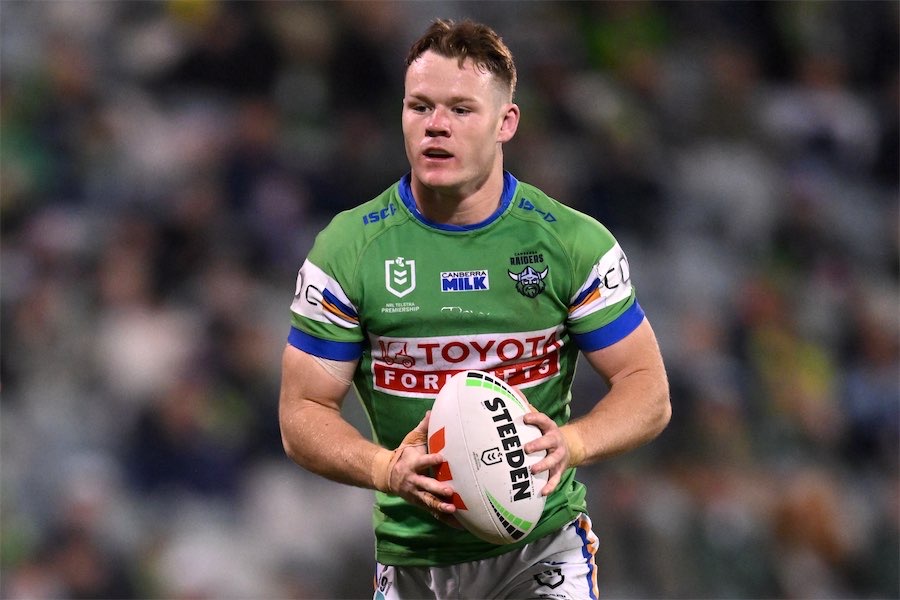
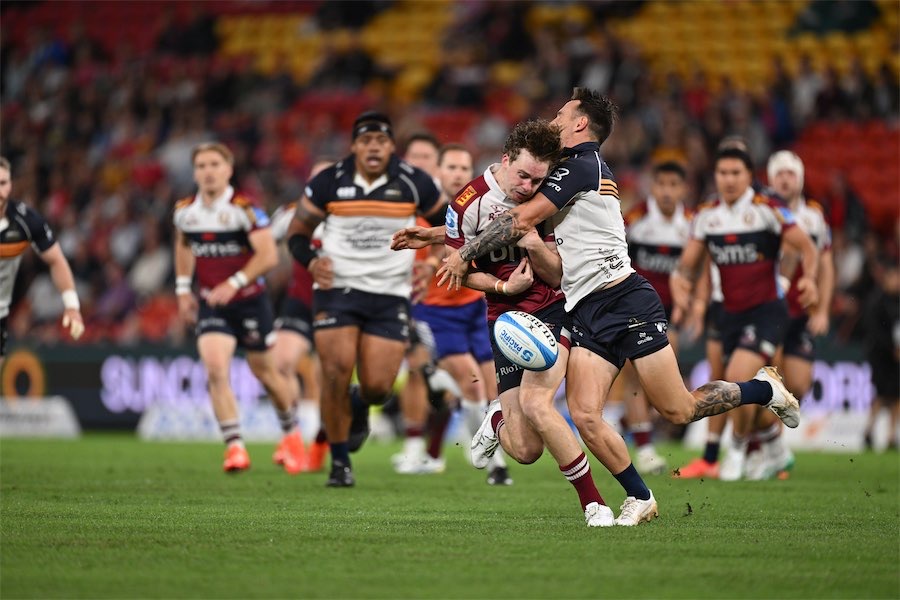
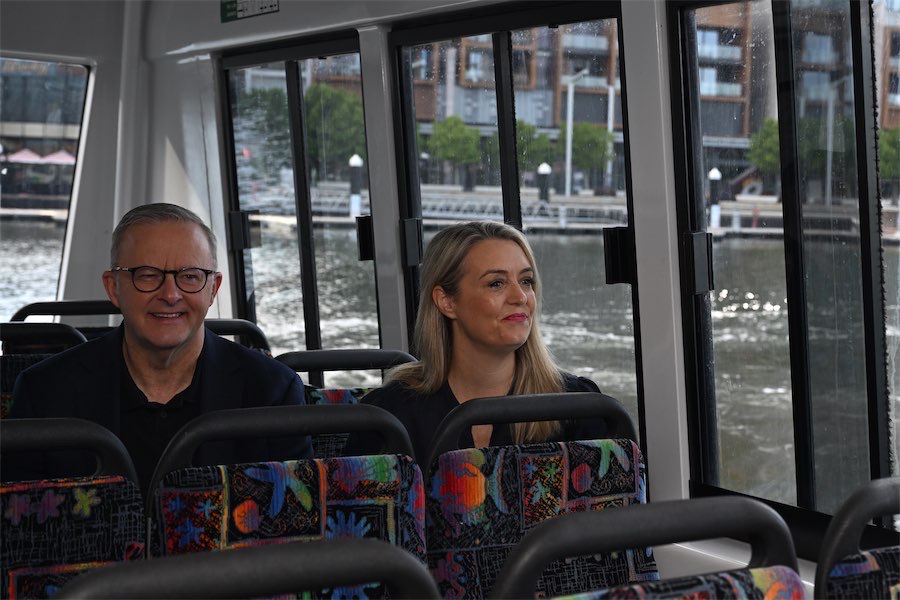





Leave a Reply